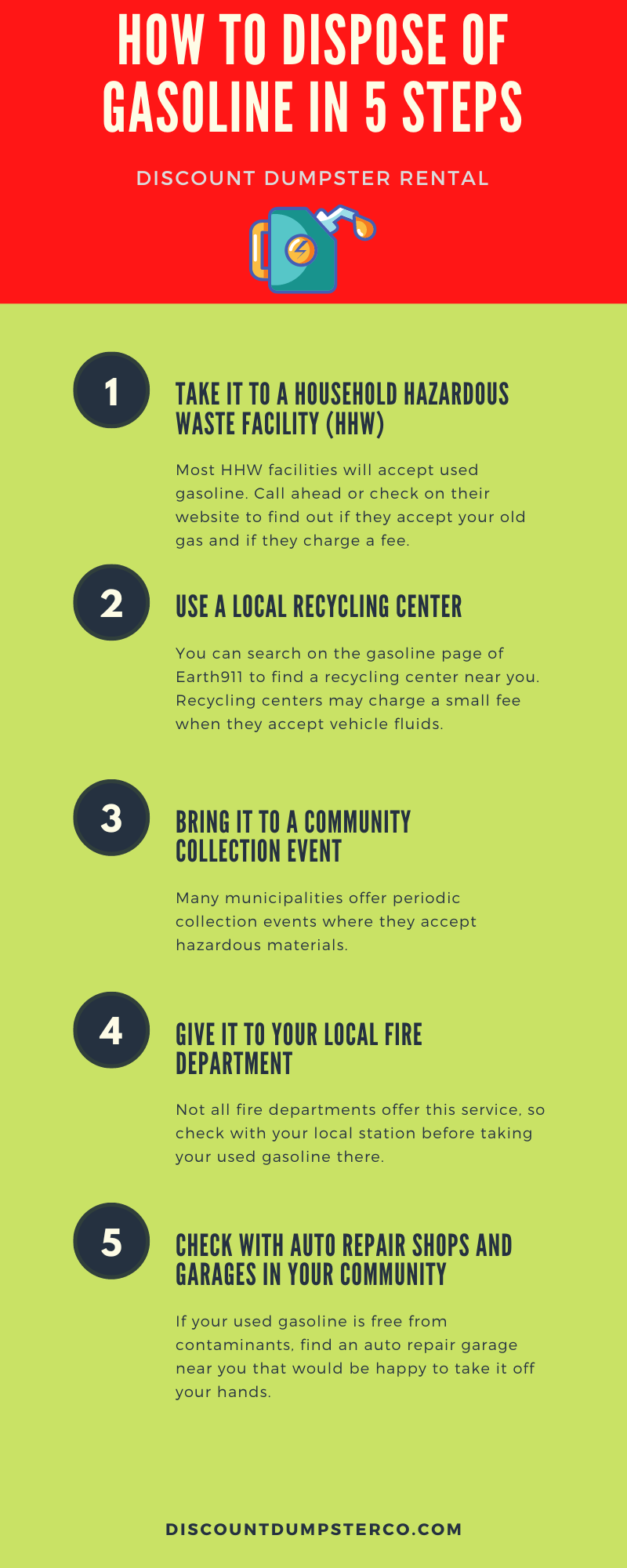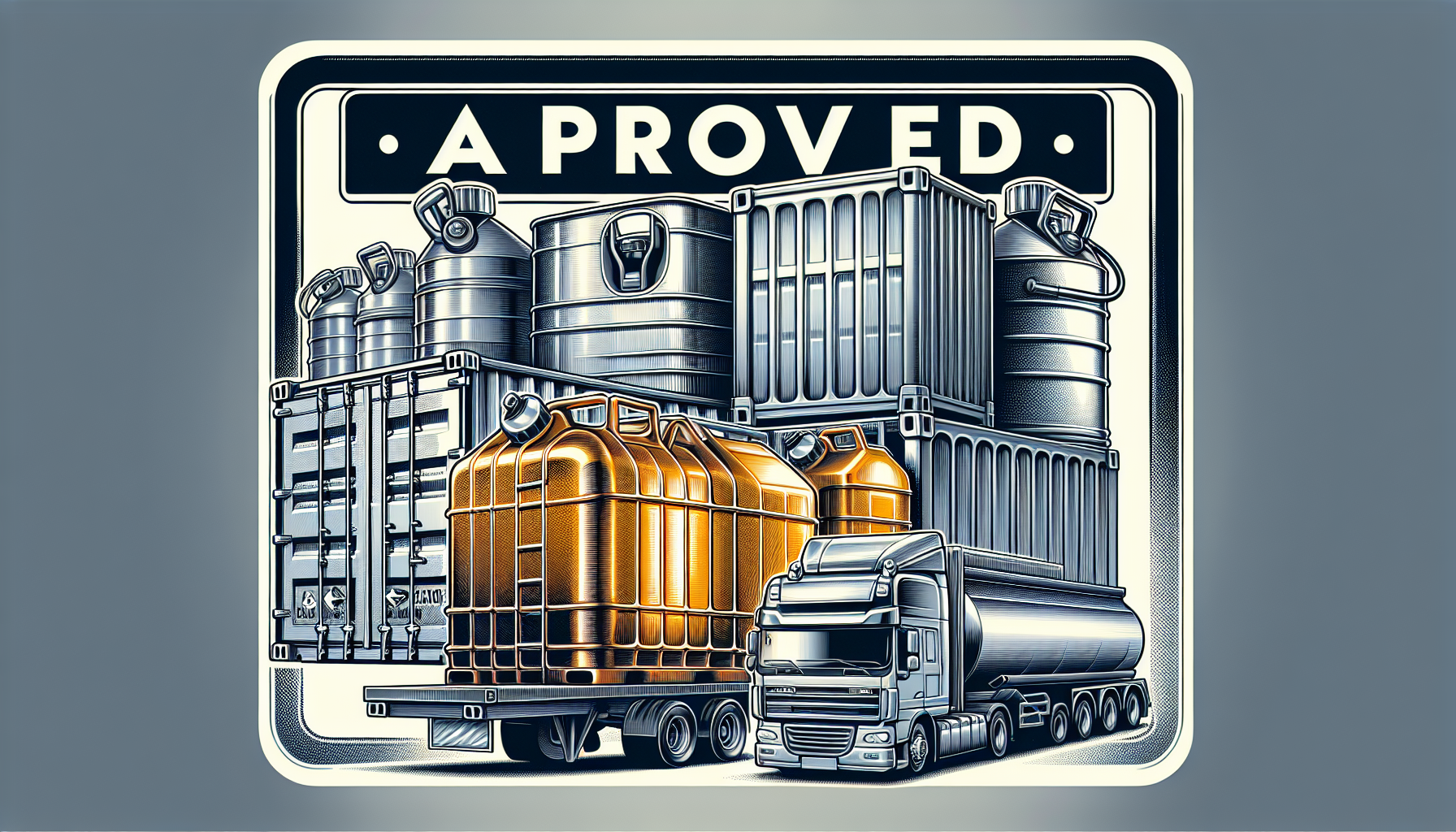Improper petrol disposal can harm the environment and pose safety risks. Knowing the right way to dispose of petrol is crucial.
Petrol is a common fuel, but disposing of it isn't simple. You can't just pour it down the drain or throw it in the trash. Doing so can cause pollution, fires, and health hazards. Proper petrol disposal protects our environment and keeps everyone safe.
This guide will help you understand the safe methods for disposing of petrol, why it's important, and the steps you can take to ensure you're following best practices. Let's dive into how you can responsibly handle petrol disposal and contribute to a safer, cleaner world.
Importance Of Proper Petrol Disposal
Proper petrol disposal is crucial. It protects our environment and health. Disposing of petrol improperly can cause serious harm. Petrol is a hazardous substance. It needs special handling. Let's explore the importance of proper petrol disposal.
Environmental Impact
Improper disposal of petrol can harm the environment. Petrol can seep into soil and water. This contaminates drinking water sources. It can kill plants and animals. Wildlife depends on clean water. Contaminated water can destroy ecosystems.
Petrol spills can also lead to air pollution. Fumes from petrol can release harmful gases. These gases contribute to global warming. They can also cause acid rain. Acid rain damages forests and lakes. Proper disposal prevents these issues.
Health Risks
Improper disposal of petrol is dangerous to human health. Petrol contains toxic chemicals. Inhaling petrol fumes can cause headaches and dizziness. Long-term exposure can lead to serious health problems. It can damage the liver and kidneys.
Skin contact with petrol can cause irritation. It can even cause burns. Drinking water contaminated with petrol can lead to poisoning. Symptoms include nausea and vomiting. Proper disposal ensures safety for everyone.
Legal Regulations
Proper petrol disposal is essential for environmental safety and public health. It is governed by strict legal regulations to prevent harm. These regulations vary by location but share common goals.
Local Laws
Different regions have specific local laws for petrol disposal. It's crucial to know your area's rules. Most areas prohibit dumping petrol in drains or on the ground. Violating these laws can result in hefty fines.
Here are some common local regulations:
- Use designated disposal facilities.
- Avoid mixing petrol with other waste.
- Transport petrol in approved containers.
Contact your local waste management authority for precise guidelines.
International Guidelines
Many countries follow international guidelines for petrol disposal. These rules ensure safety and environmental protection. The Basel Convention is one such guideline. It regulates hazardous waste movement across borders.
Key points of the Basel Convention:
- Prevent illegal dumping of hazardous waste.
- Ensure safe transport and disposal.
- Promote recycling and recovery of hazardous materials.
Following these international standards helps maintain global safety. Always stay informed about both local and international guidelines for proper petrol disposal.
Common Disposal Mistakes
Many people make mistakes when disposing of petrol. These mistakes can harm the environment and cause safety risks. Here are some common errors to avoid.
Pouring Down Drains
Never pour petrol down drains. It pollutes water sources and harms wildlife.
Petrol in drains can also cause fires and explosions. Keep petrol away from drains to avoid these dangers.
Improper Storage
Storing petrol improperly can be dangerous. Do not store petrol in open containers.
Use approved containers with tight seals. Store them in a cool, dry place, away from heat sources. Avoid keeping petrol in direct sunlight.
Avoid storing large amounts of petrol at home. It increases the risk of accidents and fires.
Check containers regularly for leaks and damage. Replace damaged containers immediately.
| Disposal Method | Risks |
|---|---|
| Pouring Down Drains | Water pollution, fire hazards |
| Improper Storage | Fire risks, environmental harm |
Dispose of petrol safely to protect yourself and the environment. Follow these tips to avoid common mistakes.

Safe Disposal Methods
Disposing of petrol properly is vital for environmental safety. Incorrect disposal can cause soil and water pollution. It can also pose health risks. Knowing the correct methods ensures we protect our surroundings. Let's explore some safe disposal methods.
Household Hazardous Waste Programs
Many local governments offer household hazardous waste programs. These programs are designed to collect and dispose of hazardous materials safely. Petrol is considered hazardous waste. Check with your local waste management service for specific guidelines.
- Find local collection events.
- Follow storage guidelines before disposal.
- Transport petrol in approved containers.
These programs ensure that hazardous waste is handled properly. Using these services reduces environmental impact. They also keep communities safe.
Professional Disposal Services
If you have large quantities of petrol, consider professional disposal services. These services specialize in hazardous waste disposal. They have the expertise and equipment to manage petrol disposal safely.
- Contact a certified disposal service.
- Schedule a pickup or drop-off.
- Ensure proper labeling of containers.
Professional services follow strict regulations. They ensure safe handling and disposal. This option is ideal for businesses or large-scale disposal needs.
Safe disposal of petrol protects our environment and health. Use household hazardous waste programs for small amounts. Use professional disposal services for larger quantities.
Eco-friendly Alternatives
Disposing of petrol can harm the environment. Instead, try eco-friendly alternatives. These methods are safe, practical, and help protect our planet. Learn how to recycle and repurpose petrol for other uses.
Recycling Petrol
Recycling petrol is an effective way to manage waste. Instead of discarding it, consider these options:
- Fuel Recovery: Clean and reuse old petrol for power generators.
- Specialized Facilities: Take petrol to facilities that handle hazardous waste.
- Blending: Combine old petrol with new fuel to improve efficiency.
Always use protective gear when handling petrol. Check local guidelines for proper disposal methods.
Repurposing For Other Uses
Old petrol can be repurposed for various applications. Here are some ideas:
- Solvents: Use petrol as a solvent for cleaning tools.
- Fire Starters: Mix petrol with sawdust for fire starters.
- Pest Control: Dilute petrol to deter pests in gardens.
Repurposing petrol reduces waste and finds new uses for old fuel. Always ensure safety and follow guidelines when repurposing petrol.
Storage Tips Before Disposal
Proper storage of petrol before disposal is crucial for safety. It ensures minimal environmental impact and prevents accidents. Below are some essential storage tips to follow.
Proper Containers
Use approved containers for storing petrol. These containers should be made of metal or plastic and specifically designed for petrol storage. Ensure they are in good condition without any leaks or damages.
Store containers in a well-ventilated area. Keep them away from direct sunlight and sources of heat. This reduces the risk of fire and explosion.
Labeling And Handling
Always label the containers clearly. Use a permanent marker to write "Petrol" on the container. Include the date of storage to keep track of its age.
Handle petrol containers with care. Wear protective gear like gloves and goggles. Avoid spilling petrol during the transfer. Clean any spills immediately with an absorbent material.
By following these tips, you can ensure safe and responsible petrol storage before disposal.
Emergency Procedures
Proper petrol disposal is crucial for safety. In emergencies, quick action is essential. Knowing what to do can prevent accidents and injuries.
Spill Response
If petrol spills, act fast to contain it. Use absorbent materials like sand or kitty litter. Place these around the spill to stop it from spreading.
Next, ventilate the area. Open windows and doors to allow fumes to escape. Petrol vapors are hazardous. Proper ventilation reduces the risk of inhalation.
Dispose of contaminated materials properly. Place them in a sealed, labeled container. Contact local waste management for disposal instructions.
Fire Safety
Petrol is highly flammable. In case of fire, do not use water. Water can spread the fire. Use a fire extinguisher rated for petrol fires. Class B extinguishers are best.
Evacuate the area immediately. Call emergency services from a safe location. Provide them with details about the fire's size and location.
Do not attempt to extinguish large fires yourself. Wait for professionals to handle it. Your safety is the priority.
Keep fire safety equipment accessible. Regularly check extinguishers and replace them if needed.

Community Initiatives
Community Initiatives play a crucial role in ensuring proper petrol disposal. They help educate and involve people in safe and environmentally friendly practices. These initiatives make it easier for communities to take action and dispose of petrol responsibly.
Awareness Campaigns
Awareness campaigns are vital in spreading the message about safe petrol disposal. They aim to inform the public about the dangers of improper petrol handling. These campaigns use various media to reach a broad audience.
- Posters and flyers distributed in public places
- Informative sessions in schools and community centers
- Social media posts and videos
By raising awareness, these campaigns encourage people to follow safe disposal methods. They also highlight the environmental and health risks associated with careless petrol disposal.
Local Collection Events
Organizing local collection events is another effective community initiative. These events provide a convenient way for people to dispose of petrol safely. Local authorities and environmental groups often host these events.
| Event Type | Frequency | Location |
|---|---|---|
| Household Hazardous Waste Collection | Monthly | Community Centers |
| Special Drive | Quarterly | Local Parks |
During these events, trained professionals handle the petrol. They ensure it is disposed of in an eco-friendly manner. These events also educate the public on safe storage and disposal practices.
Community initiatives like awareness campaigns and local collection events play a significant role in promoting safe petrol disposal. They help protect the environment and public health by encouraging responsible behavior.

Frequently Asked Questions
What Is Petrol Disposal?
Petrol disposal means safely getting rid of unused petrol. It's important to follow guidelines.
Why Is Petrol Disposal Important?
Improper disposal harms the environment. It can pollute water and soil, and it's a fire hazard.
How To Dispose Of Petrol Safely?
Take it to a local hazardous waste facility. They know how to handle it.
Can I Pour Petrol Down The Drain?
No, never pour petrol down the drain. It can cause serious environmental damage.
Is There A Special Container For Petrol Disposal?
Yes, use a certified petrol container. It should be leak-proof and clearly labeled.
What Happens If Petrol Is Disposed Of Incorrectly?
It can cause fires, explosions, and environmental pollution. Always dispose of it properly.
Can I Reuse Old Petrol?
Old petrol can lose effectiveness. It might harm engines. Check with a professional before reuse.
Where Can I Find Petrol Disposal Facilities?
Check your local government website. They often list hazardous waste disposal sites.
How To Store Petrol Before Disposal?
Store in a cool, dry place. Use an airtight, approved container. Keep away from heat sources.
Are There Petrol Disposal Services?
Yes, some companies offer disposal services. They follow safety regulations and handle petrol properly.
Conclusion
Proper petrol disposal is crucial for safety and the environment. Follow guidelines to avoid hazards. Store petrol in approved containers. Never pour petrol down drains or on the ground. Local recycling centers can help with disposal. Educate yourself and others about safe practices.
Remember, responsible actions protect our planet. Keep your surroundings safe and clean by disposing of petrol correctly. Your effort makes a big difference. Stay informed and act responsibly. Together, we can create a safer environment.